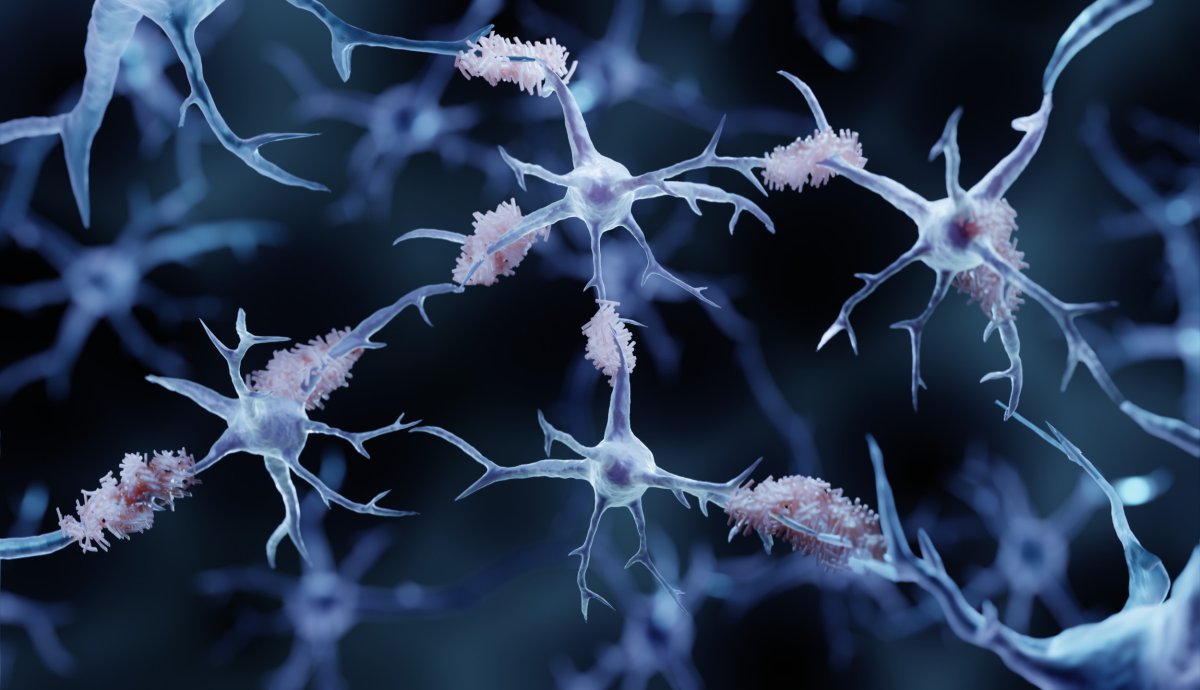A breakthrough in dementia research from UC Berkely promises to revolutionize how we treat neurodegenerative disease.
Many neurodegenerative diseases, like Alzheimer's and Parkinson's, are characterized by a build-up of abnormal protein clumps around the brain. "We always thought that protein clumps directly kill neurons, for example by puncturing membrane structures within these cells," Michael Rapé, a professor of cell and developmental biology at UC Berkely, said in a statement.
Most research into treatments focused on breaking up these clumps has shown little success. But new research by Rapé's lab, published in the journal Nature, suggests that these protein accumulations may not actually be responsible for killing our brain cells. Rather, it appears the brain cells are dying due to the body's own failure to turn off their stress response.
"We now found that aggregates prevent silencing of a stress response that cells originally mount to cope with bad proteins," Rapé said. "The stress response is always on, and that's what kills the cells."

Rapé compared this to cleaning up your room before turning your light off when going to bed—if you don't turn off the light, you can't fall asleep. But if you turn off the light before you clean up your room, you would stumble in the dark over your messy floor.
"Aggregates don't kill cells directly," he said. "They kill cells because they keep the light on. But that means that you can treat these diseases, or at least the dozen or so neurodegenerative diseases that we found have kept their stress responses on. You treat them with an inhibitor that turns off the light. You don't have to worry about completely getting rid of large aggregates, which changes how we think about treating neurodegenerative diseases. And most importantly, it makes this really doable."
Key to the team's discovery was a large protein complex which they called Silencing Factor of the Integrated stress response, aka SIFI. This molecular machine serves two main purposes: first it cleans up the abnormal protein clumps and, when it's done, it switches off the brain cells' stress response, mounted to cope with the abnormal proteins.
"[Protein] aggregates kind of hijack that natural stress response-silencing mechanism, interfere with it, stall it," Rapé said. "And so that's why silencing never happens when you have aggregates, and that's why cells die."
The team hopes that this discovery will inform future treatments for neurodegenerative diseases, focused around turning off this stress response and reactivating the SIFI complex to clear any built-up proteins.
"We think that the same mechanisms may underlie more common pathologies that also show widespread aggregation, such as Alzheimer's disease or frontotemporal dementia, but more work is needed to investigate the role of stress signaling in these diseases," Rapé said.
Is there a health issue that's worrying you? Do you have a question about dementia? Let us know via health@newsweek.com. We can ask experts for advice, and your story could be featured on Newsweek.
Uncommon Knowledge
Newsweek is committed to challenging conventional wisdom and finding connections in the search for common ground.
Newsweek is committed to challenging conventional wisdom and finding connections in the search for common ground.
About the writer
Pandora Dewan is a Senior Science Reporter at Newsweek based in London, UK. Her focus is reporting on science, health ... Read more
To read how Newsweek uses AI as a newsroom tool, Click here.






